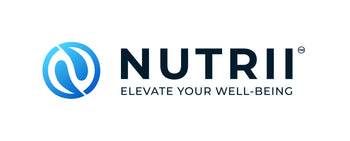If you’re an athlete, you put a lot of effort and work into your training regimen so that you can perform your best when you’re in the game. While training your body for game time is indeed important, it is arguably even more important that you feed your body with the nutrition it needs.
After all, as an athlete––regardless of age, skill level, or sport––you place your body under a great deal of physical stress as you train to be the best. Therefore, you must also plan to feed your body with the right nutrition to fuel your performance. If you don’t, you risk lacking energy, performing at less-than-your-best, or even injury in extreme cases.
If you’re an athlete looking to get to the next level in your performance, you’ve come to the right place. Let’s take a look at the top five nutrition tips for athletes. These tips will help you fuel your body with the best of the best, which will serve to help you perform better than the rest. Let’s dig in.
#1: Keep your kitchen “clean”.
Why is it so hard to stay away from the ice cream that’s in your freezer? Well, that’s easy. It’s because it’s in your freezer.
By keeping your kitchen stocked with healthy food choices instead while eliminating all the bad and unhealthy junk food, you proactively set yourself up for nutritional success. So if you want to start eating healthier, one of the easiest ways to do so is to clean up your kitchen. Throw out all the junk food––you’ll feel a tremendous difference in your energy and performance.
#2: Eat carbs to fuel your workouts.
As people adopt low-carb diets (such as the keto diet), people are developing a negative opinion on carbohydrates. But while low-carb diets may be beneficial for people who are trying to lose weight, your athletic body could actually do with more carbs in your diet.
Carbs are an athlete’s most readily available fuel, which makes them the perfect source of energy before you start your intense workouts or performances. As a general rule, try eating a diet that consists of about 70 percent carbohydrates. Opt for complex carbs, such as whole-grain bread, cereals, pasta, fruit, root vegetables, and oats.
#3: Eat your greens.
Let’s face it–-most of us are not eating nearly as many greens as we should. However, greens are a powerhouse when it comes to nutrients and boosting overall health.
Especially if you’re a high-performing athlete, eating more vegetables can make the world of difference in how well you perform, how much energy you have, and how quickly you can recover after training. Sure, protein and carbohydrates are important, but vegetables provide a huge dose of minerals and vitamins that actually help your body in processing nutrition from protein and carbs.
For starters, aim to eat at least a fist-sized amount of vegetables with every meal. Also, focus on eating a variety of vegetables rather than just one all the time. If you have trouble eating vegetables at every meal, try taking a supplement as well. Nutrii’s Super Greens provides a daily dose of healthy greens, including the ancient medicinal herbs turmeric and ashwagandha, both of which have been proven to provide a wide range of health benefits.
#4: Don’t forget the salt.
Because of the very serious risk of hypertension that comes with consuming too much salt, we’re taught to try to avoid foods that are high in salt or to avoid eating salt altogether.
While this advice is great for the general population––who may not live active lives––high-performing athletes should be more intentional with their sodium intake.
After all, athletes lose a lot of sodium and electrolytes when they sweat, so it's important to replenish these stores. Not doing so can lead to cramps, lower performance, and––in extreme cases––serious injury or death. One of the best ways to keep your sodium and electrolyte levels at a healthy level is by seasoning your meals with salt.
#5: Track your nutrition daily.
Science shows that people who track their progress––regardless of what they’re working towards––are more likely to remain on-track and reach their goals. So if you want to improve your eating habits, start tracking your daily nutrition. This will not only help you stay on track with eating properly, but it will also help you to learn more about what foods/beverages your body wants, needs, and should avoid altogether.


